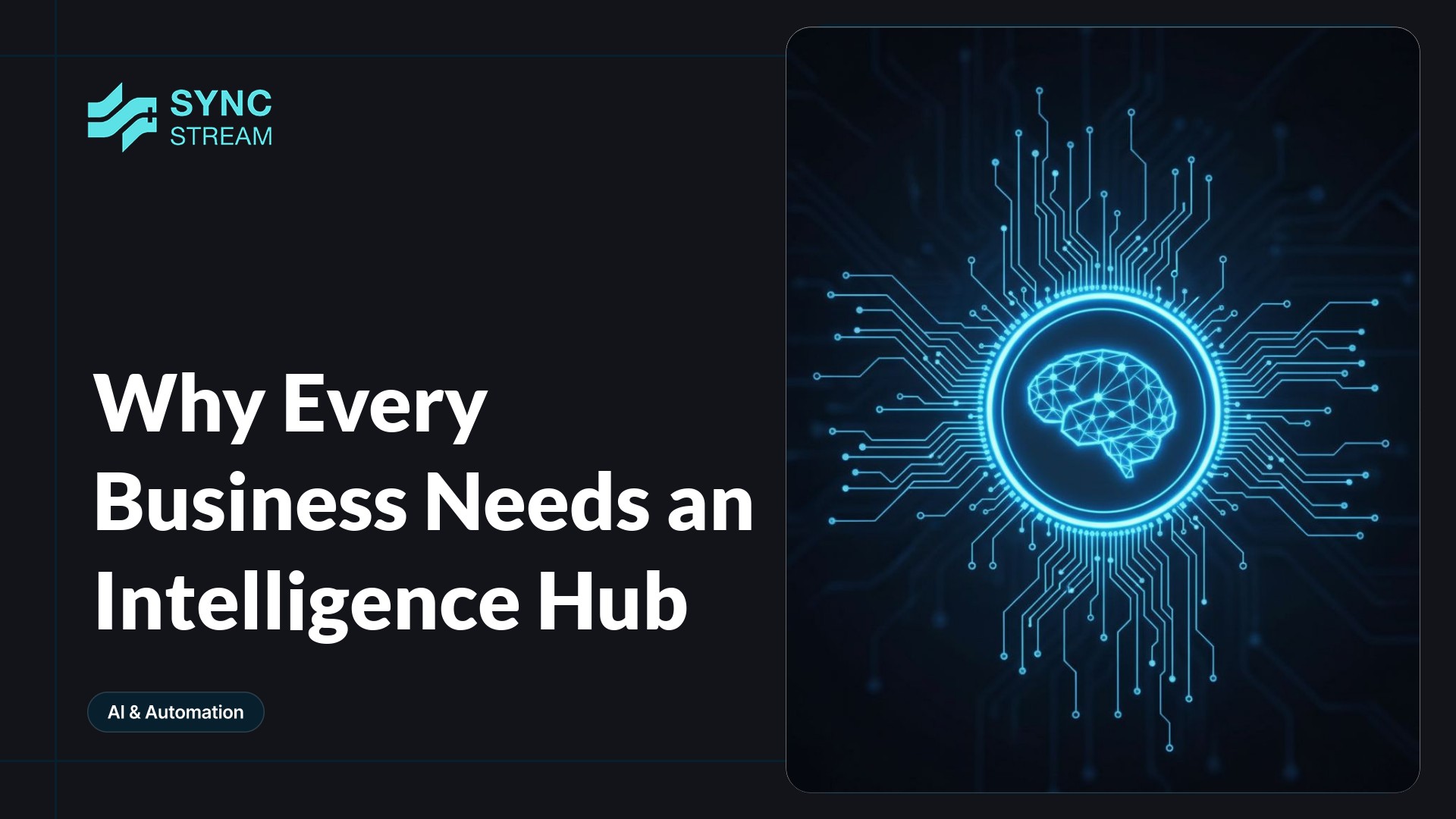
Your business relies on a lot of data. This data comes from different sources: your sales leads, customer service feedback, employee records, financials, and even social media interactions. But here’s the catch: most businesses keep these data points in different systems that don’t talk to each other.
Imagine your business as a team of people all working hard, but none of them are allowed to speak to each other. It doesn’t matter how skilled they are; without communication, they can’t work together efficiently. This is what happens with your data (your intelligence) when it’s spread out across various tools. You have a lot of potential insight, but it’s locked away, not connected.
What Is an Intelligence Hub?
An intelligence hub, also often called a knowledge base, is a system that takes all that valuable data, pulls it together, and makes it accessible in one place. It’s like creating a unified brain for your business—a central system that gathers all the different bits of information and makes them work together. By combining data from every part of your business, you get a complete view, not just scattered snapshots.
Think of it as moving from a collection of separate puzzle pieces to an assembled picture where everything makes sense.
Why CEOs and Entrepreneurs Need an Intelligence Hub
- See the Whole Picture: When your systems are unified, you get clear visibility. No more guessing what’s going on because your sales data isn’t linked to your operational capacity. You know exactly what’s happening and how different parts of the business affect each other.
- Make Better Decisions: Imagine being able to predict how hiring a new salesperson will impact your customer delivery team, or knowing whether a dip in customer satisfaction is linked to product delays. An intelligence hub gives you the data-backed insights to make these decisions confidently.
- Save Time and Effort: Instead of searching for information across multiple tools and spreadsheets, all the insights you need are in one place. This means less time spent digging for answers and more time focusing on growth. The intelligence hub connects dots automatically, so you and your team can move faster.
The Role of AI in the Intelligence Hub
An intelligence hub is powerful because it is powered by AI. AI doesn’t just collect data; it understands it. It identifies patterns, makes predictions, and offers recommendations. Instead of you having to sift through reports, AI can tell you which clients are likely to need extra support soon or which areas of your business are running smoothly.
With AI built into your intelligence hub, you move from having static information to having actionable insights delivered to you proactively. It’s like having an advisor who constantly watches everything, spots opportunities, and warns of issues before they happen.
Moving Beyond Siloed Systems
Most tools today have built-in AI features—your CRM has AI to help with leads, your payroll system has AI for managing payments. But here’s the problem: they only work in isolation. They can’t connect with other AIs or share their insights, meaning you still miss out on the big picture.
An intelligence hub changes this. It brings everything together, so your CRM, HR, finance, and customer service systems all feed into one intelligent central hub. It’s AI working for the whole business, not just one function.
The Bottom Line
An intelligence hub, or knowledge base, allows you to use your data to its full potential. It connects the dots across your business, gives you the insights you need to make smart decisions, and allows you to act faster. When powered by AI, it becomes a game-changer—turning data into a strategic advantage.
The world is only getting more competitive; those who see the big picture and act on it will always stay ahead. An intelligence hub is your ticket to that edge.
